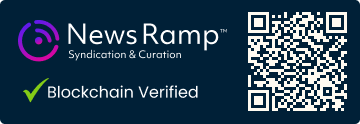
Customer Relationship Management (CRM) software, traditionally associated with business operations, has found a new and vital role in the education sector. As institutions face increasing challenges in managing data, interactions, and student engagement, CRM software tailored for education has emerged as a crucial tool for schools, colleges, and universities.
Education CRM software serves as a centralized hub for student data, enabling institutions to efficiently manage admissions, enrollment, academic progress, and alumni relations. This shift towards digitization addresses several critical gaps in traditional systems, including disconnected data across departments, inefficient manual processes, and limited insights into student behavior and needs.
Key features of education CRM software include centralized data management, automated workflows, enhanced communication tools, analytics and reporting, and mobile access. These functionalities allow institutions to consolidate data from multiple sources, streamline repetitive tasks, improve student outreach, make data-driven decisions, and provide on-the-go access to information.
The benefits of implementing CRM software in higher education are substantial. For students, it means improved communication, personalized experiences, and streamlined services from application to graduation. Institutions gain efficiency, better student engagement, and valuable data insights that drive informed decision-making across departments.
Top use cases for CRM software in education span admissions and enrollment, student support services, alumni engagement, and event management. In admissions, CRMs automate applicant tracking and communication, saving time for staff and improving the experience for prospective students. For current students, these systems help monitor progress and provide timely support, potentially improving retention rates. Alumni relations benefit from targeted campaigns that keep graduates connected and engaged with their alma mater.
When selecting CRM software for education, institutions should consider factors such as ease of integration with existing systems, customization options, user-friendliness, scalability, and available support and training. Popular platforms in this space include Element451, Salesforce Education Cloud, Slate, TargetX, and Zoho CRM, each offering unique features tailored to educational needs.
Looking ahead, the role of CRM in education is set to expand with emerging trends such as AI and machine learning integration, support for virtual and hybrid learning environments, and enhanced data security and compliance measures. As institutions continue to navigate the complexities of the digital age, CRM software for education will play an increasingly vital role in ensuring student success and institutional efficiency.
The adoption of CRM software for education represents a significant step towards digital transformation in the academic world. By unifying data, automating processes, and providing actionable insights, these platforms empower institutions to enhance the overall educational experience, from prospective student recruitment to alumni engagement. As the education landscape continues to evolve, CRM software will undoubtedly remain at the forefront of innovation, helping institutions meet the changing needs of students and staff alike.

This news story relied on a press release distributed by 24-7 Press Release. Blockchain Registration, Verification & Enhancement provided by NewsRamp™. The source URL for this press release is CRM Software Revolutionizes Higher Education Management.